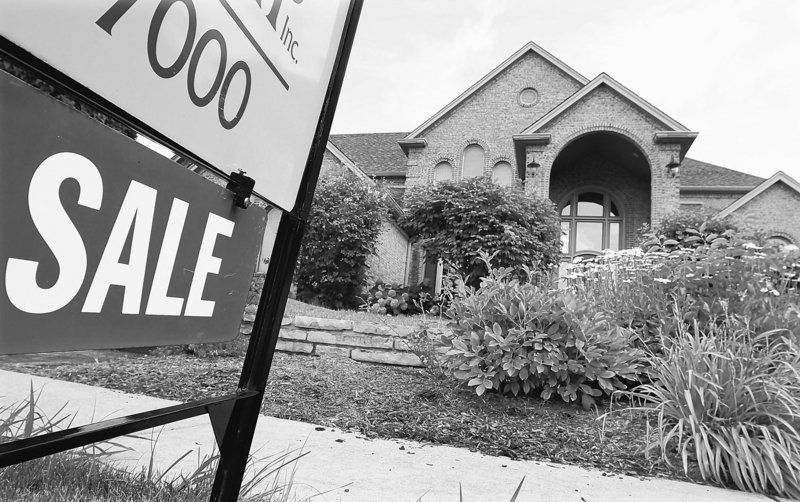WASHINGTON – Growing pessimism over the weak economic recovery pushed mortgage rates to the lowest level in decades for the seventh time in eight weeks.
The average rate on a 30-year fixed mortgage hit 4.44 percent this week, mortgage buyer Freddie Mac said Thursday. Some brokers say homeowners looking to refinance have even managed to do so for as low as 4 percent.
Still, cheap rates have done little to boost the struggling housing market. Instead, they are highlighting investors’ fears that the rebound is stalling and the country could be slipping back into a recession.
The Federal Reserve said Tuesday it would buy Treasury bonds to help aid the recovery, using the proceeds from debt and mortgage-backed securities it bought from Fannie Mae and Freddie Mac. That will push Treasury yields — and mortgage rates — even lower.
That move alone is unlikely to push average rates down to 4 percent, said Bob Walters, chief economist at Quicken Loans. But average rates that low are possible if the economic outlook worsens further.
“The silver lining to a bad economy is that interest rates fall,” Walters said. “If you can lower your debt burden by refinancing, that’s great.”
Up to now, low rates have failed to spark a struggling housing market. Slow job growth, a 9.5 percent unemployment rate and tight credit standards have kept people from buying homes. Applications to refinance have grown but remain well short of a boom.
Overall home loan applications rose only 0.6 percent last week from a week earlier, the Mortgage Bankers Association said Wednesday.
For those homeowners with solid finances, the opportunity to refinance below 4 percent is persuading some to consider 15-year fixed loans. Those average rates have dropped to 3.92 percent, down from 3.95 percent last week and the lowest in decades.
More homeowners are choosing that option because it allows them to save money in the long run, though it costs more in monthly payments. Freddie Mac said nearly a third of borrowers refinancing 30-year loans in the April-to-June quarter picked loans with 15-year or 20-year terms.
Still, savvy consumers can already find 30-year fixed rates at or near 4 percent if they are willing to pay a little more upfront.
Chik Quintans, assistant sales manager with Atlas Mortgage in Seattle, said he was able to get two clients into mortgages with a 4 percent interest rate and a fee of 1 percent of the total mortgage amount on Wednesday. But rates have inched up since then.
“Every day’s different,” Quintans said. “Sometimes people have to ruminate, and then the opportunity’s gone.”
Refinancing could pick up significantly if rates fall further. An average rate below 4.375 percent could be enough of a drop so that many people who refinanced last year could shave a half of a percentage point off their mortgage rates, said Scott Buchta, chief mortgage strategist with Braver Stern Securities.
Lenders could find themselves in a bind if traffic picks up, Buchta said. They have laid off thousands of workers during the past three years and don’t have enough staff to handle a crush of new applications.
Mortgage rates often fluctuate significantly, even within a given day. To calculate the national average, Freddie Mac collects mortgage rates on Monday through Wednesday of each week from about 125 banks, thrifts and credit unions around the country in a voluntary survey.
Rate quotes from parts of the country with more lending activity — such as the West and Northeast — are given more weight in creating the average.
Rates on five-year adjustable-rate mortgages averaged 3.56 percent, down from 3.63 percent a week earlier. Rates on one-year adjustable-rate mortgages fell to an average of 3.53 percent from 3.55 percent.
Send questions/comments to the editors.



Success. Please wait for the page to reload. If the page does not reload within 5 seconds, please refresh the page.
Enter your email and password to access comments.
Hi, to comment on stories you must . This profile is in addition to your subscription and website login.
Already have a commenting profile? .
Invalid username/password.
Please check your email to confirm and complete your registration.
Only subscribers are eligible to post comments. Please subscribe or login first for digital access. Here’s why.
Use the form below to reset your password. When you've submitted your account email, we will send an email with a reset code.